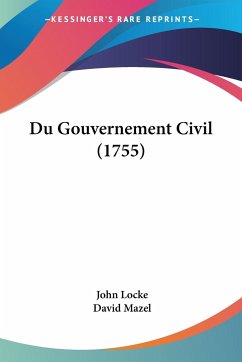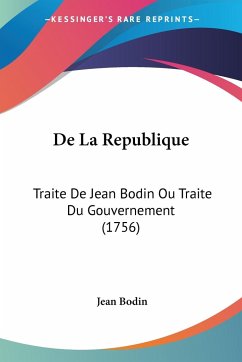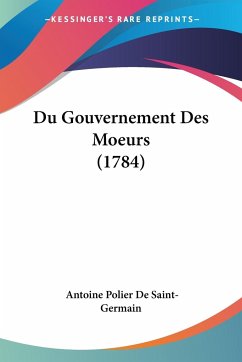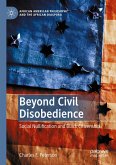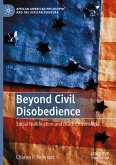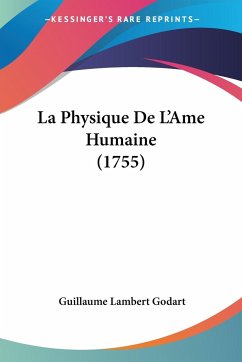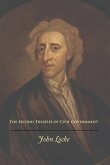Du Gouvernement Civil est un livre ¿¿¿¿¿crit par John Locke en 1755. Il s'agit d'un ouvrage politique important qui traite de la nature du gouvernement et de la relation entre le gouvernement et les citoyens. Locke y expose sa th¿¿¿¿¿orie selon laquelle le pouvoir politique doit ¿¿¿¿¿¿tre limit¿¿¿¿¿ et que les citoyens ont des droits naturels qui doivent ¿¿¿¿¿¿tre prot¿¿¿¿¿g¿¿¿¿¿s. Il d¿¿¿¿¿fend ¿¿¿¿¿galement l'id¿¿¿¿¿e que le gouvernement doit ¿¿¿¿¿¿tre fond¿¿¿¿¿ sur le consentement des gouvern¿¿¿¿¿s et que les citoyens ont le droit de se r¿¿¿¿¿volter contre un gouvernement qui ne respecte pas leurs droits. Ce livre a eu une grande influence sur les id¿¿¿¿¿es politiques de l'¿¿¿¿¿poque et a contribü¿¿¿¿ ¿¿¿¿¿¿ la formation de la pens¿¿¿¿¿e lib¿¿¿¿¿rale moderne.This scarce antiquarian book is a facsimile reprint of the old original and may contain some imperfections such as library marks and notations. Because we believe this work is culturally important, we have made it available as part of our commitment for protecting, preserving, and promoting the world's literature in affordable, high quality, modern editions, that are true to their original work.
Hinweis: Dieser Artikel kann nur an eine deutsche Lieferadresse ausgeliefert werden.
Hinweis: Dieser Artikel kann nur an eine deutsche Lieferadresse ausgeliefert werden.

